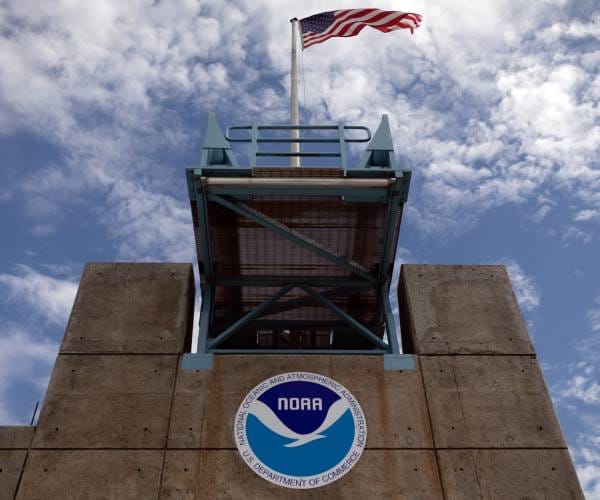[ad_1]
As the specter of extreme weather events looms larger amid a changing climate, a pressing call has emerged for stricter regulations on experimental interventions to manipulate the Earth’s atmosphere, Politico reported.
The National Oceanic and Atmospheric Administration (NOAA) finds itself at the center of this debate as experts warn of the potential consequences of unchecked solar geoengineering endeavors.
Entrepreneurial proposals to mitigate heat waves by dispersing aerosols into the atmosphere near cities like Phoenix highlight the growing interest in solar geoengineering technologies. David Bookbinder, a prominent climate attorney who previously served as Sierra Club’s chief climate counsel, voices concerns over the lack of readiness among regulators to manage such interventions effectively.
The current regulatory framework, dating back to the 1970s, requires minimal reporting from private entities intending to modify weather conditions. However, experts argue that these rules are insufficient to address the complexities and risks associated with large-scale geoengineering experiments.
Bookbinder and a coalition of academics and researchers have petitioned NOAA to update its regulations, urging for enhanced transparency and oversight of solar radiation modification activities. They stress the need for comprehensive reporting requirements to assess potential impacts and risks adequately.
“There’s no governance on the international level, national governance. There’s no state governance. There’s nothing,” Bookbinder said.
NOAA’s ongoing research efforts on atmospheric alterations acknowledge the need to monitor activities that could affect the Earth’s energy balance. However, critics contend that existing regulations fail to explicitly address solar geoengineering and lack provisions to address crucial gaps in oversight.
The case of Make Sunsets, a company selling “cooling credits” through weather balloon deployments to deposit sunlight-reflecting sulfate particles into the upper atmosphere, underscores the challenges of regulating solar geoengineering on an international scale. Despite controversy surrounding its activities in Mexico and Nevada, the company’s operations highlight the regulatory ambiguity surrounding such ventures.
While Harvard University recently discontinued a solar radiation modification research project, interest in geoengineering persists. Advocates emphasize the importance of establishing clear guidelines for research, preferably under the auspices of federal scientific bodies like the U.S. Global Change Research Program.
As the Biden administration navigates climate policy, the White House emphasizes a commitment to reducing emissions and promoting environmental justice. However, there are no immediate plans to initiate a “comprehensive research program specifically focused on solar radiation modification,” the White House wrote last year.
Jim Thomas ✉
Jim Thomas is a writer based in Indiana. He holds a bachelor’s degree in Political Science, a law degree from U.I.C. Law School, and has practiced law for more than 20 years.
© 2024 Newsmax. All rights reserved.
